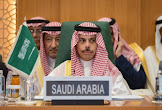The drill, named Security Belt-2025, will take place in
early and mid-March near Iran’s southeastern Chabahar Port, involving various
branches of the three nations' naval forces.
The Chinese Defense Ministry announced the exercise on
Sunday via its official Weibo account, detailing that the drill will include
multiple training operations such as maritime target strikes, VBSS (visit,
board, search, and seizure), damage control, and joint search and rescue
missions.
According to the ministry, the primary goal of Security
Belt-2025 is to enhance military trust and strengthen practical cooperation
between the participating forces. China’s People’s Liberation Army (PLA) Navy
is set to deploy a destroyer and a replenishment ship for the exercise.
A Chinese military analyst emphasized that the drill will
contribute to safeguarding security in a strategically critical region,
particularly one that serves as a key transit route for global energy
shipments.
Security
Belt-2025 marks the fifth joint naval exercise between Iran, China, and Russia
since 2019.
Over the past few years, the three nations have conducted
multiple military drills to reinforce regional maritime stability and safeguard
international trade routes.
In addition to countering piracy and maritime terrorism,
these exercises have facilitated intelligence sharing on naval rescue
operations and the exchange of tactical and operational expertise.
In March 2024, the Iranian Navy, along with Chinese and
Russian naval and airborne units, participated in the Maritime Security
Belt-2024 drills.
Observers from Azerbaijan, Kazakhstan, Oman, Pakistan, and
South Africa attended the exercises, reflecting the growing interest in
multilateral maritime cooperation.
The joint maneuvers were designed to strengthen maritime
security, bolster international trade protection, combat piracy, and enhance
operational coordination among naval forces.
The drills also served as a demonstration of the
participants' collective commitment to global peace and stability at sea.
As part of the upcoming exercises, the Islamic Revolution
Guard Corps Navy (IRGCN) will deploy two advanced vessels: the Shahid Nazeri
and the Shahid Sayyad Shirazi.
Commissioned into the IRGC Navy in September 2016, the
Shahid Nazeri is a high-speed patrol and reconnaissance vessel designed for
extended operational reach. With a length of 55 meters, a width of 14 meters,
and a height of 13 meters, the vessel significantly enhances the IRGCN’s
maritime capabilities, extending its operational range up to 10,000 kilometers.
The Shahid Nazeri features a specialized twin-hull (SWATH –
Small Waterplane Area Twin Hull) design, providing enhanced stability in
high-speed operations and rough seas. Its design ensures that it remains steady
even at high speeds, reducing the risk of capsizing.
Equipped with a helicopter landing pad, the vessel can
conduct surveillance and reconnaissance missions across various maritime zones,
making it a valuable asset for intelligence gathering and patrol operations.
The Shahid Sayyad Shirazi is a newly commissioned stealth
warship from the Shahid Soleimani class, officially joining the IRGC Navy in
February 2024. This catamaran-style ocean-going vessel is designed for
high-speed operations, with a maximum speed of 45 knots.
Armed with a wide array of offensive and defensive missile
systems, the Shahid Sayyad Shirazi is equipped with vertical-launch Nawab air
defense missiles and Sayyad cruise missiles with a strike range of 700
kilometers.
With a length of 67 meters, a width of 20 meters, and a
displacement of 600 tons, the vessel is powered by four engines, enabling
long-distance operations. It has an operational range of 5,500 nautical miles
and is capable of carrying three missile-launching fast attack boats along with
an armed combat helicopter.






